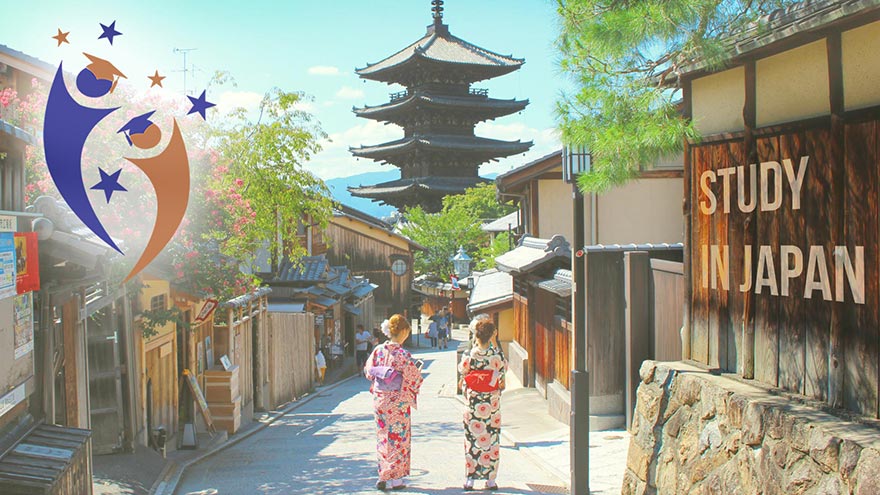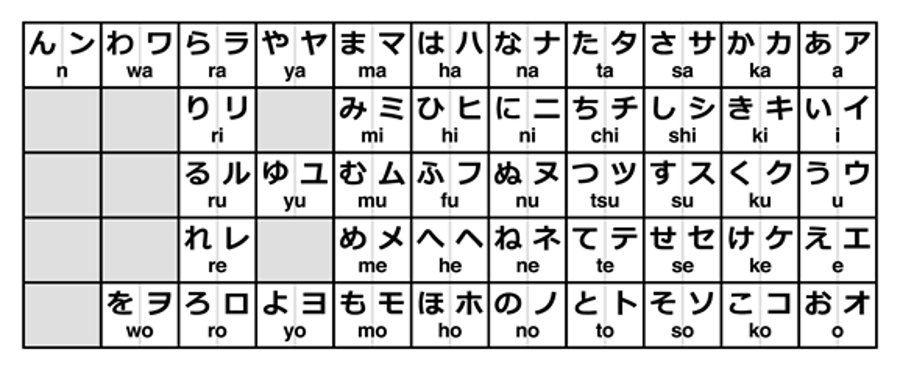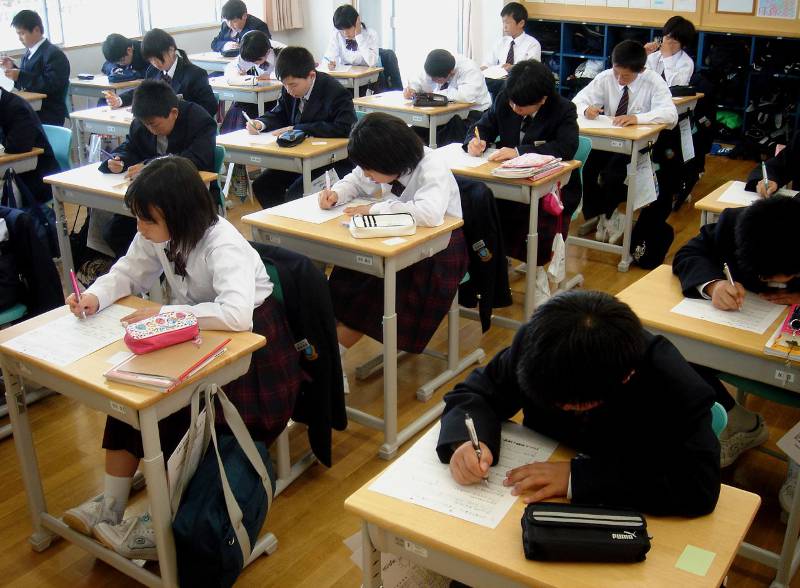Studying in Japan can be challenging due to language barriers and cultural differences. It also offers unique opportunities for growth.
Japan offers a unique educational experience that blends tradition with cutting-edge technology. International students often face challenges such as learning Japanese and adapting to a different academic culture. Despite these hurdles, many find studying in Japan rewarding. The country is known for its high educational standards and innovative research opportunities.
Students can also immerse themselves in Japan’s rich cultural heritage, making the experience enriching both academically and personally. Financial aid and scholarships are available, making it accessible for many. Understanding these aspects can help you prepare better for your academic journey in Japan.

Adapting To A New Culture
Studying in Japan can be a life-changing experience. It offers unique opportunities to immerse yourself in a vibrant culture. However, adapting to a new culture can present challenges. Below, we explore some of the key aspects of cultural adaptation.
Cultural Shock
Experiencing cultural shock is common for international students in Japan. Everyday customs may seem unusual. Social norms and etiquette differ significantly from other countries. For instance, bowing is a common form of greeting. Public transportation is often quiet and orderly. Understanding and respecting these norms is crucial.
Food can also be a source of cultural shock. Japanese cuisine is diverse and often very different from Western food. Trying new dishes like sushi, ramen, and natto can be both exciting and intimidating. Adjusting to these new flavors and eating habits can take time.
Language Barriers
Language barriers can be a significant challenge. Japanese is a complex language with three writing systems: Hiragana, Katakana, and Kanji. Basic conversational skills are essential for daily life. Many universities offer Japanese language courses for international students. These courses can help you adapt more quickly.
Using technology can also assist with language barriers. Translation apps are very helpful. They can translate signs, menus, and conversations in real-time. This makes navigating daily life easier.
| Challenge | Solution |
|---|---|
| Cultural Shock | Learn and respect social norms |
| Food | Be open to trying new dishes |
| Language Barriers | Take language courses, use translation apps |
Adapting to a new culture in Japan involves understanding and embracing differences. With an open mind, these challenges can become rewarding experiences.

Educational System Differences
Studying in Japan can be an enriching experience. However, the educational system differs significantly from many Western countries. Understanding these differences can help students adapt better. The key aspects include teaching methods and evaluation standards.
Teaching Methods
Japanese schools focus heavily on rote learning. Students often memorize large amounts of information. This method can be challenging for those used to a more interactive approach.
Classroom environments are structured and disciplined. Teachers expect students to listen quietly and take notes. Group activities are less common compared to Western schools.
Here’s a table to summarize the key differences:
| Aspect | Japanese Schools | Western Schools |
|---|---|---|
| Learning Style | Rote Learning | Interactive Learning |
| Classroom Environment | Structured and Disciplined | Flexible and Interactive |
| Group Activities | Less Common | More Common |
Evaluation Standards
Evaluation standards in Japan are rigorous and high. Students face frequent exams that test their knowledge in detail. This can be demanding for those not used to such pressure.
Grades are extremely important in Japan. Students often feel intense pressure to perform well. The grading scale is also different, with more emphasis on ranking students.
Here are some key points about evaluation:
- Frequent exams
- High standards
- Intense pressure
- Different grading scale
Understanding these aspects can help students prepare better. Adapting to the Japanese educational system requires effort. However, it can be a rewarding experience.
Language Proficiency
Studying in Japan can be a thrilling experience. One of the main challenges is language proficiency. Understanding Japanese is crucial for both academics and daily life. Let’s dive into the specifics.
Japanese Language Requirements
Most universities in Japan require a certain level of Japanese proficiency. The Japanese Language Proficiency Test (JLPT) is commonly used to assess this. Many programs require at least an N2 level, which indicates an advanced understanding of the language.
Here is a quick overview of JLPT levels:
| JLPT Level | Description |
|---|---|
| N1 | Fluent in Japanese, near-native level |
| N2 | Advanced Japanese, can understand complex topics |
| N3 | Intermediate Japanese, can understand daily conversations |
| N4 | Basic Japanese, can understand some everyday expressions |
| N5 | Beginner Japanese, understands basic phrases |
Learning Resources
Several resources can help you learn Japanese efficiently. Here are some popular options:
- Textbooks: Genki, Minna no Nihongo
- Online Courses: Duolingo, Rosetta Stone
- Language Exchange: Tandem, HelloTalk
- Mobile Apps: Anki, LingoDeer
- Japanese TV Shows and Movies: Netflix, Crunchyroll
Utilizing these resources can make your learning journey smoother. Consistent practice is key to mastering Japanese.
Financial Considerations
Studying in Japan can be a thrilling experience. Yet, financial considerations play a crucial role. Below, we explore two significant financial aspects: tuition fees and living expenses.
Tuition Fees
Tuition fees in Japan vary by institution and program. Public universities tend to be more affordable. On average, tuition fees for public universities range from ¥500,000 to ¥800,000 per year. Private universities can be more expensive, with fees reaching up to ¥1,500,000 annually.
Japanese universities often require an entrance fee. This fee ranges from ¥200,000 to ¥300,000. Scholarships and grants are available to international students. These can significantly reduce the overall cost.
Living Expenses
Living expenses in Japan depend on the city and lifestyle. Major cities like Tokyo and Osaka are more expensive. Monthly living costs can range from ¥80,000 to ¥150,000. This includes rent, food, transportation, and entertainment.
Here is a table summarizing average monthly living expenses:
| Expense Category | Cost (¥) |
|---|---|
| Rent | ¥30,000 – ¥60,000 |
| Food | ¥20,000 – ¥40,000 |
| Transportation | ¥5,000 – ¥10,000 |
| Entertainment | ¥10,000 – ¥20,000 |
Part-time jobs are a common way to offset living expenses. Students can work up to 28 hours per week. These jobs often pay between ¥800 to ¥1,500 per hour.
Social Integration
Studying in Japan offers a unique cultural experience. Social integration is key for making the most of your stay. This involves making friends and joining clubs and societies. Let’s explore these aspects in detail.
Making Friends
Making friends in Japan can be both exciting and challenging. Japanese students are generally very friendly. They appreciate when you show interest in their culture. Here are some tips to help you make friends:
- Learn basic Japanese phrases.
- Attend social events and gatherings.
- Be open and approachable.
- Show genuine interest in others.
By following these tips, you will find it easier to connect with Japanese students.
Joining Clubs And Societies
Joining clubs and societies is a fantastic way to integrate. Universities in Japan have numerous clubs and societies. These range from sports to cultural activities. Here are some popular options:
| Club/Society | Description |
|---|---|
| Tea Ceremony Club | Learn the traditional Japanese tea ceremony. |
| Martial Arts Club | Practice judo, karate, or kendo. |
| Language Exchange Club | Help each other learn different languages. |
| Anime and Manga Club | Discuss and create anime and manga. |
Joining these clubs helps you meet like-minded people. It also enhances your Japanese experience.
Social integration in Japan is a rewarding journey. Making friends and joining clubs will enrich your study experience. Embrace these opportunities to make lifelong memories.
Housing And Accommodation
Studying in Japan offers a unique cultural experience. One major aspect is housing and accommodation. Finding the right place to live can impact your study experience. Here’s an overview of your options:
Dormitory Life
Dormitories are popular for international students. They provide a community atmosphere. Most universities offer on-campus dorms. This option reduces commute time.
Living in a dorm is affordable. You can focus on your studies. Dorms often have shared facilities. These include kitchens, bathrooms, and laundry rooms.
Many dorms host social events. This helps you make new friends. It’s a great way to immerse in Japanese culture.
| Dormitory Type | Cost (Monthly) | Facilities |
|---|---|---|
| Shared Room | $200 – $400 | Shared kitchen, bathroom, laundry |
| Single Room | $300 – $600 | Private room, shared facilities |
Off-campus Housing
Off-campus housing offers more freedom. You can choose your living space. Apartments are the most common choice. They range from small studios to larger units.
Rent can be higher than dorms. It varies by location and size. Major cities are more expensive. Smaller towns are more affordable.
Consider additional costs. These include utilities, internet, and furniture. Some apartments come furnished. Others require you to buy your own.
- Rent: $400 – $1,000 per month
- Utilities: $50 – $100 per month
- Internet: $20 – $50 per month
Finding off-campus housing might need local help. Real estate agents can assist. They know the best places and deals.
Living off-campus allows you to explore more. You can experience local neighborhoods. This can enhance your cultural immersion.
Academic Pressure
Studying in Japan can be challenging. The academic pressure is intense. Students face high expectations from teachers. They must keep up with a rigorous curriculum. Let’s break this down further.
Study Load
Japanese students have a heavy study load. They attend school six days a week. Homework is given every day. Tests are frequent and demanding. Many students also attend cram schools after regular classes. These schools help them prepare for important exams. This adds to their study load.
Balancing Work And Study
Many students work part-time jobs. They need to balance work and study. This is not easy. They must manage their time well. Working hours can be long. This leaves less time for study and rest. Finding a balance is a constant challenge.
| Factors | Details |
|---|---|
| Study Load | School, homework, cram schools |
| Work and Study | Part-time jobs, time management |
Support Systems
Studying in Japan can be challenging for many international students. However, various support systems are available to help ease the transition. These systems ensure that students can focus on their studies and adapt to life in Japan.
University Resources
Japanese universities offer a range of resources to support their students. This includes libraries, study rooms, and computer labs. Many universities also provide academic advising services. These services help students plan their courses and manage their time effectively.
Some universities have language centers where students can improve their Japanese skills. These centers offer courses and workshops tailored to different proficiency levels. Additionally, universities often have counseling services to assist with mental health and stress management.
| Resource | Description |
|---|---|
| Libraries | Access to books, journals, and research materials |
| Study Rooms | Quiet spaces for individual and group study |
| Computer Labs | Facilities with computers and internet access |
| Language Centers | Courses and workshops to improve Japanese skills |
| Counseling Services | Mental health and stress management support |
Peer Support
Peer support is crucial for international students. Universities often have student organizations that connect new students with their peers. These organizations organize events and activities to help students make friends and adapt to their new environment.
Mentorship programs are another valuable resource. Senior students or alumni guide new students, offering advice and support. This can be especially helpful for navigating academic and social challenges.
- Student organizations
- Mentorship programs
- Social events and activities
International student clubs can also provide a sense of community. These clubs often host cultural exchange events, language practice sessions, and social gatherings.

Frequently Asked Questions
Is Studying In Japan Difficult?
Studying in Japan can be challenging due to the language barrier and cultural differences. However, many universities offer support services. With dedication and the right resources, it is manageable.
Do I Need To Speak Japanese Fluently?
While fluency in Japanese is beneficial, many universities offer programs in English. Learning basic Japanese can help with daily life and integration.
Are Japanese Universities Competitive?
Japanese universities can be competitive, especially for popular programs. It’s important to prepare well for entrance exams and meet admission requirements.
What Support Is Available For International Students?
Many universities provide support services like language classes, academic advising, and cultural activities. These resources help international students adjust and succeed.
Conclusion
Studying in Japan offers unique challenges and rewarding experiences. Embrace the cultural differences and academic rigor. With dedication and the right mindset, success is achievable. The supportive environment and diverse opportunities make it a worthwhile endeavor. Prepare well, stay focused, and enjoy the journey of learning in Japan.
